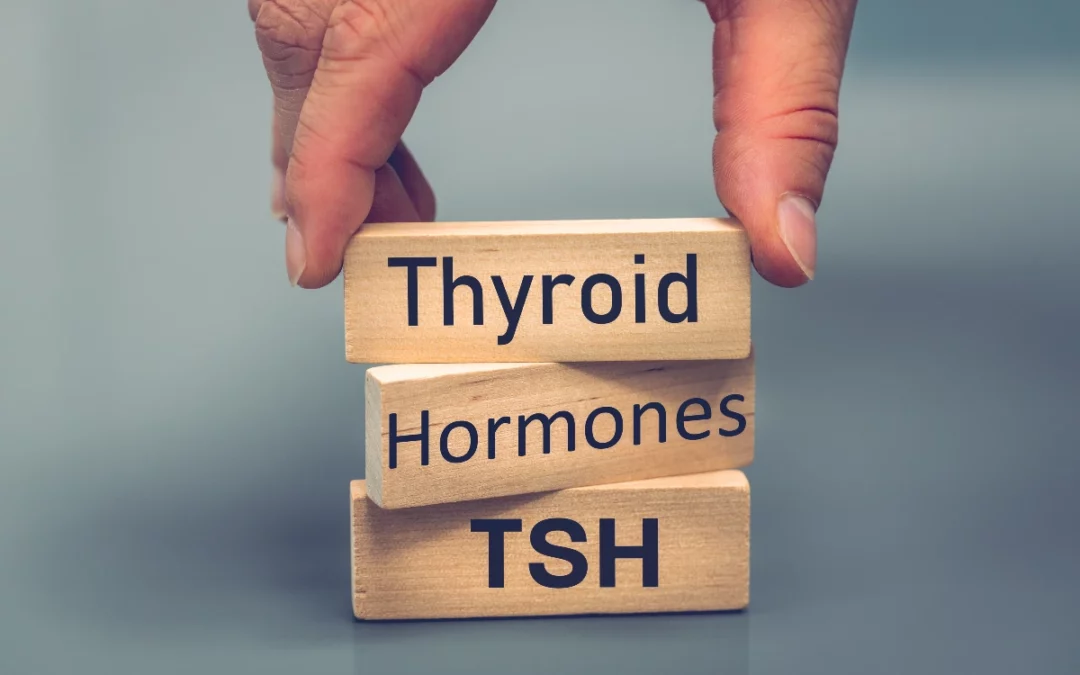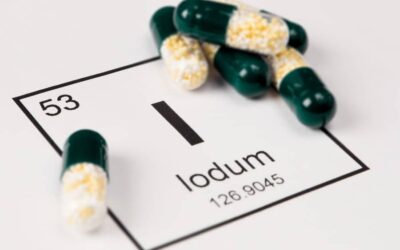The TSH (thyroid stimulating hormone) is an essential hormone to follow up for a thyroid dysfunction suspicion. This dosage will also be essential to check an abnormal thyroid function, and also after total thyroidectomy in a thyroid cancer. It is a very simple and routine sample which will help correct certain biological thyroid disorders, and it will be useful for the replacement therapy after a total thyroidectomy for thyroid cancer.
What is the TSH ?
Thyroid stimulating hormone (TSH) is a hormone used to control thyroid activity. It is produced by the pituitary gland, the hormone conductor in our human body. The thyroid is a small endocrine gland located at the base of the neck responsible for making thyroid hormones, essential for the body to function. These are the famous T3 and T4 hormones:
- T3: tri-iodothyronine or T3
- T4: tetra-iodothyronine or thyroxine, a reserve hormone produced in greater quantities than T3. So, if thyroid hormones are needed, T4 can be converted to T3 and become active.
They contribute to the energy body production, heat and also have an action on the metabolism. These hormones have an effect on many organs: muscles, digestive tracts, skin, hair… Thyroid symptoms dysfunction are various.
In some cases, TSH can be abnormally low or too high, revealing thyroid gland dysfunction which can have several etiologies, we’ll discuss about it later in this article.
Read also: Thyroid blood tests decoded : Making sense of your results
Dosages indications
The dosage is performed on a blood sample, this blood test does not particularly require fasting. The request for a TSH test can be made afront multiple symptoms suggesting hyperthyroidism or hypothyroidism. Symptoms such as insomnia, diarrhea, rapid weight loss, heart palpitations, mood disturbances will suggest an overactive thyroid. On the contrary, symptoms such as constipation, asthenia, and significant weight gain suggest hypothyroidism. We will therefore have an accelerated metabolism state for hyperthyroidism and a slowing down metabolism in hypothyroidism.
Read also : Signs of hypothyroidism in men and why they can’t be ignored
What is the normal level of TSH ?
When the TSH is above 4 mIU / L, the thyroid does not produce enough hormones. Trying to stimulate it, the pituitary gland will therefore produce more TSH because there will be no feedback from the thyroid hormones. This is called hypothyroidism.
What kind of follow up after cancer ?
How is thyroid cancer revealed ?
4% of the population has palpable thyroid nodules, but the nodule prevalence varies between 20 and 40% if they are detected by ultrasound. Fortunately, they are most of the time benign and a simple thyroid tissue dystrophy. A TSH test will be necessary and a thyroid ultrasound to control the nodule characteristics. Depending on these ultrasound characteristics, this exam could be helped with a fine needle aspiration to know the risk of thyroid cancer.
TSH : what’s the use after a cancer ?
Every treatment for cancer will start on the first intention with a thyroid surgery. Surgery is in most of the cases full, which leads to a definitive hypothyroidism necessitating a lifetime hormone replacement therapy.
After a thyroidectomy, a hormonal substitute treatment will be needed. The TSH test will show us if the substitutive treatment is adapted or if is not. The TSH level will be checked 6 weeks to 2 months after a replacement therapy to adapt the treatment the best as possible.
In that case, the level of T3 or T4 hormones won’t have any interest. T3 should stay normal. Once we have the perfect hormone therapy, an annual or biannual TSH blood test should be enough.
A diet rich in iodine to overcome hypothyroidism?
A rich iodine diet may be beneficial for hypothyroidism in order to overcome certain hypothyroidism symptoms such as weight gain or fatigue. This diet must be rich in iodine and nutrients to produce more thyroid hormones: selenium, vitamin B12 and vitamin D. It will be interesting to eat fish, seafood, eggs, Brazil nuts, dairy products…
Thyroid hormone supplementation after total thyroidectomy for thyroid cancer is essential, TSH level is important to adjust the therapy replacement and for the patient’s comfort.




